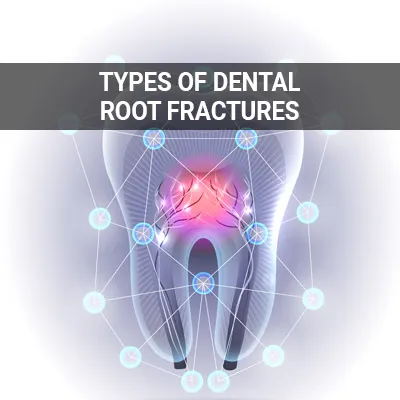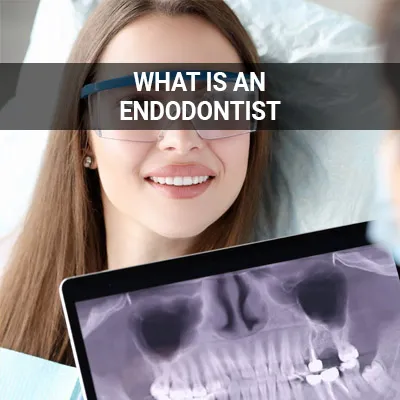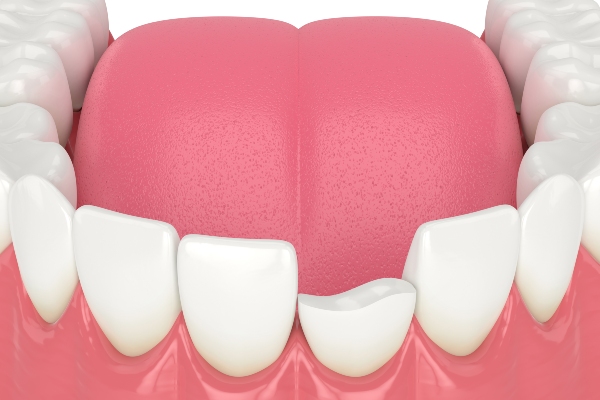Can a Cracked Tooth be Saved with a Root Canal and Crown North Miami Beach, FL
A cracked tooth is a serious problem that requires immediate attention. If not properly treated, it may have adverse effects on one's health. Fortunately, root canals and crowns may help treat severe cases of cracked teeth.
Root canals and crowns are available at Biscayne Dental Center in North Miami Beach and the surrounding area. We may be able to help save your cracked tooth. Call us today at (305) 824-2271 to schedule an appointment and learn more.
Symptoms of a Cracked Tooth
There are five kinds of cracked teeth: craze lines, fractured cusps, cracks extending into the gum line, split teeth, and vertical root fractures. Each type of cracked tooth shows different symptoms. Craze lines have tiny, painless cracks in the teeth enamel, and they typically do not require any treatment. Fractured cusps usually occur around dental fillings without affecting the tooth's pulp, and they are generally painless. Usually, teeth with cracks that have reached the gum line require immediate extraction; however, they may still be salvageable if the crack has yet to reach the gum line.
Split teeth have cracks extending from the surface to below the gum line and can typically be separated into at least two segments. Such teeth generally cannot be saved as a whole. Teeth with vertical root fractures have cracks that begin from below the gum line and extend upwards. With all types of cracked teeth, patients may experience pain when chewing or biting, tooth sensitivity, swelling of the gum around the affected tooth, and intermittent pain.
“With all types of cracked teeth, patients may experience pain when chewing or biting, tooth sensitivity, swelling of the gum around the affected tooth, and intermittent pain.”
The Severity of Cracked Tooth Syndrome
Cracked tooth syndrome (CTS) is when a patient has a tooth with a crack that is challenging to identify. It shows up most often on molars. The symptoms of CTS include pain and discomfort when biting into food or increased sensitivity to hot and cold. This pain comes and goes.
Many oral health conditions can lead to CTS. Common causes include grinding or clenching teeth, teeth with large fillings, or teeth that have had a root canal. Many people experience symptoms for months since CTS is so tough to diagnose. People who have experienced cracked teeth in the past are more susceptible to CTS in the future.
“Cracked tooth syndrome (CTS) is when a patient has a tooth with a crack that is challenging to identify.”
When a Cracked Tooth Can Be Saved
When treating a cracked tooth, the dentist has many factors to consider. The location of the crack and the type of crack will determine the right treatment option. It is possible to treat a biting surface fracture with a crown, fitting it over the remains of the tooth and making it stronger.
A crack that goes below the gum line may need more extensive treatment like a root canal. A root canal is when the dentist removes the infected or inflamed part of the pulp, cleans the rest of the space, then fills and seals it with a special material. A crown is then fitted on the tooth to provide extra protection.
Thanks to advancements in dental techniques, a root canal is a procedure relatively free of discomfort. As long as the patient follows proper oral health care, most teeth with a root canal can last for decades. Our staff will walk the patient through all the treatment options to help them feel comfortable with the procedure.
Sometimes a cracked tooth can be saved using methods other than a root canal or crown. For example, it may be possible to fill or bond the tooth if the crack removed a small piece of tooth enamel. A veneer would offer another option if only the front part of the tooth got cracked. Patients should be sure to talk about all of their treatment options with our dentist during their assessment appointment.
“Thanks to advancements in dental techniques, a root canal is a procedure relatively free from discomfort.”
Check out what others are saying about our dental services on Yelp: Can a Cracked Tooth be Saved with a Root Canal and Crown in North Miami Beach, FL
When a Tooth Is Beyond Repair
When a tooth gets cracked, our staff will do all they can to save it. Sometimes, a crown or root canal is not enough to preserve a tooth, and extraction becomes necessary to prevent infection and further decay. Fractures can also happen below the gum line, which can be harder to fix without removing the tooth.
If possible, the patient should try to save the tooth instead of having it removed. However, if tooth removal is necessary, dental implants can effectively replace the missing tooth. Patients will want to discuss any alternative options with our dentist when assessed for a root canal treatment.
“When a tooth gets cracked, our staff will do all they can to save it.”
Questions Answered on This Page
Q. How can I make sure my repaired cracked tooth stays saved?
Q. What is cracked tooth syndrome?
Q. How can you save a tooth with a root canal?
Q. What are the options when a tooth cannot be repaired?
People Also Ask
Q. Is increased sensitivity to temperature a sign that endodontic surgery is necessary?
Q. Do I need a root canal procedure?
Q. What is the difference between endodontists and dentists?
Q. What is it like to go through the process of receiving a dental crown?
Q. Are pain and tenderness when touching the teeth or chewing a sign of a problem?
Aftercare for a Repaired Cracked Tooth
Unlike in broken bones, the fractures in a cracked tooth will not heal. Some cracks may even continue to grow until they separate, leading to total tooth loss. Crowns protect the treated teeth, but even they are not foolproof. Fortunately, endodontic retreatment is possible if any treated teeth heal improperly or become reinfected due to external factors.
Knowing how to care for a repaired cracked tooth is arguably just as important as having it treated in the first place. With improper aftercare, patients may inadvertently worsen the pain and have the crack spread. Some pain or discomfort may follow most cracked tooth treatment options; however, this should be easily managed with painkillers (either prescribed or over-the-counter). Biscayne Dental Center also provides patients with post-treatment instructions to ensure the best results.
“Knowing how to care for a repaired cracked tooth is arguably just as important as having it treated in the first place.”
Frequently Asked Questions
Q. How do I know if I have a cracked tooth?
A. A cracked tooth mimics the symptoms of many other dental issues. However, you may experience discomfort when you bite down or be sensitive to hot and cold foods. Do not ignore these symptoms. The sooner a cracked tooth is diagnosed and treated, the better.
Q. What can I do to keep my teeth from cracking?
A. It is difficult to avoid cracked teeth; still, you can do some things to reduce your chances. Do not chew on hard objects like ice or pens, look into a mouthguard if you clench or grind your teeth, and wear a mouthguard while playing contact sports.
Q. Could I have cracked tooth syndrome (CTS)?
A. Cracked tooth syndrome is when the crack on the tooth is not detected on an X-ray or resides under the gums. Since the crack is hard to see, many people may suffer for months before seeking help. Our dentist will utilize many different methods to help diagnose CTS.
Q. Why does a cracked tooth hurt?
A. Inside the tooth is a soft connective tissue called the pulp. This pulp contains cells, blood vessels, and nerves. Pulp may become irritated when the outer hard tissues of the tooth are cracked and chewing causes movement of the broken pieces.
Dental Terminology
Helpful Related Links
- American Dental Association (ADA). Glossary of Dental Clinical Terms. 2025
- American Academy of Cosmetic Dentistry® (AACD). Home Page. 2025
- WebMD. WebMD’s Oral Care Guide. 2025
About our business, license, and website security
- Biscayne Dental Center was established in 2011.
- We accept the following payment methods: American Express, Cash, Check, Discover, MasterCard, and Visa
- We serve patients from the following counties: Miami-Dade County
- We serve patients from the following cities: North Miami Beach, North Miami, Aventura, Sunny Isles Beach, Hallandale Beach, Bal Harbour, North Bay Village, Miami Shores, Golden Beach, Hollywood, Miami Gardens and Surfside
- FL (License #DN16637). View License Information and Specifics
- National Provider Identifier Database (1659464253). View NPI Registry Information
- Norton Safe Web. View Details
- Trend Micro Site Safety Center. View Details
Back to top of Can a Cracked Tooth be Saved with a Root Canal and Crown
QR code for Can a Cracked Tooth be Saved with a Root Canal and Crown












